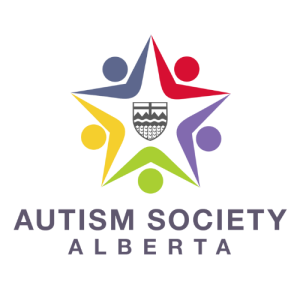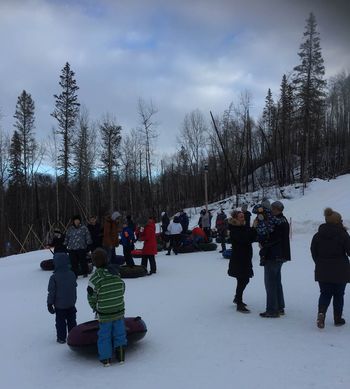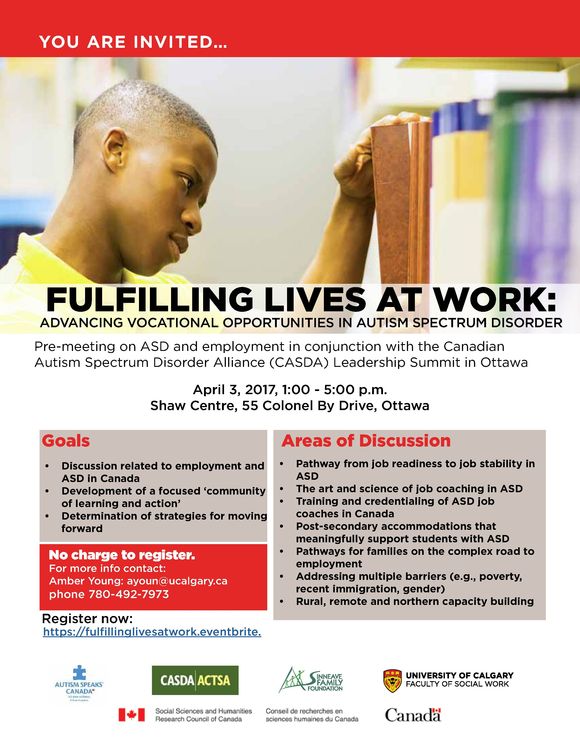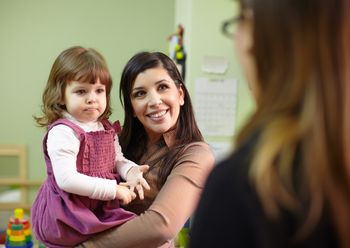February Update from Autism RMWB
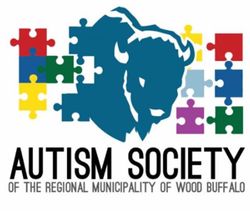
Happy Valentine’s Month from the Autism Society of the R.M.W.B.! This month we hosted a family tubing day at our local ski hill. It was great turnout, with 98 people in attendance. Everyone had a blast, weather was great, and the staff at Vista Ridge were amazing!
In other news, a local boy named Josh generously requested that, instead of getting birthday gifts, his friends and family should make donations to the Autism Society of the RMWB. In total $415 was given to us on his behalf. We are so grateful for such a kind gesture from such an amazing kid! A big thank you to Josh!
We are planning several new events for the upcoming months:
- March Movie Night
- Autism Awareness Art Gala on April 22nd, featuring comedian Don Burnstick
- Paint Night fundraiser for Mother's Day on May 14th (Almost sold out!)
Sincerely,
Autism Society of the Regional Municipality of Wood Buffalo
780-742-4424
AutismSupport@AutismRMWB.org
Still Haven't Signed Up for an RDSP?
 The Government of Canada launched its Registered Disability Savings Plan in 2008. But according to one article, it's still only a small proportion of eligible families who are making use of the RDSP. This is basically free money from the government to help save for your loved one's future – Why pass it up?
The Government of Canada launched its Registered Disability Savings Plan in 2008. But according to one article, it's still only a small proportion of eligible families who are making use of the RDSP. This is basically free money from the government to help save for your loved one's future – Why pass it up?
Some families might not be sure whether they're eligible, or might find the application process daunting. But all the beneficiary needs to be eligible is to be age 59 or younger, a resident of Canada, have a Social Insurance Number, and also be eligible for the Disability Tax Credit.
And once your RDSP is set up, it's a risk-free investment with generous matching grants (up to $3,500 a year) and bonds of up to $1000 from the federal government – that's up to $4,500 in free money every year.
It's not too late – Just follow the simple process for applying for an RDSP and benefit from this generous program today!
Autism, Gender and Sexuality
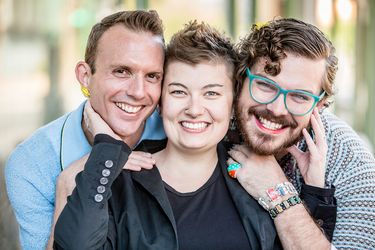
I don’t often talk about my own sexuality, certainly not publicly, but doing so may help to illustrate some of the problems that surround our understanding of the sexualty of disabled people. I am asexual – meaning that I do not experience sexual attraction. I likewise find romance rather uninteresting. I don’t know why – I just do. As a result, I do not date, though I certainly could choose to do so regardless.
This absence of sexual feeling appears to be more common among autistic people than our neurotypical peers, but it’s still relatively unusual, even for us. However, a common reaction I get when I discuss this aspect of myself with others is, “Well, most autistic people are like that, right?”
Life would be much simpler if that were so.
The reality is that most autistic people do experience sexual feelings and that many autistic people struggle with expressing their sexuality in social settings due to the complexity of the rituals and norms that surround sexual and romantic interactions. Others simply do not express their feelings for fear of rejection. Yet others do have healthy, if atypical, sexual relationships. And some, like myself, happily ignore the entire hullabaloo. The difficulties of this situation are often exacerbated by an insufficient effort to provide appropriate sex education to autistic adolescents due to our discomfort with thinking of disabled people as sexual beings, particularly in cases of co-occurring intellectual delays.
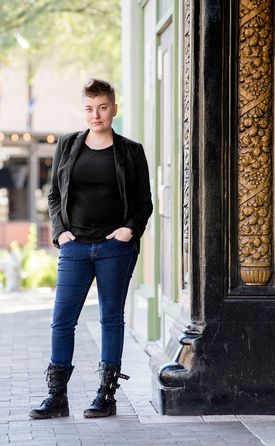
Nonetheless, we live in a gendered world, where what is appropriate and what is inappropriate are often a function of the genders of the people involved. I am not exempt from the additional complexity of such factors simply because I exist outside of them in my own mind. I suspect that many other autistics struggle with the expectations of gender in much the way that I do, even when they don’t share my indifference.
I have, since a very young age, been oft cajoled to be more feminine, at least when people were aware that my first name is indeed “Jessica”. At other times I have been sharply criticized for being insufficiently masculine, primarily by people who knew me only as a soft spoken stranger in a suit. For all that I do not mind dresses and similar items, I have become more reluctant to wear such things in public places, as it seems people on the street are far more likely to invade the personal space of and make discomforting comments towards a broad shouldered woman than they are a short, round-faced man. Such situations are difficult for me to navigate and potentially dangerous besides, so I largely default to a more masculine presentation, for all that I am yelled at by the occasional street preacher.
The expectations we have of people based on the gender we perceive them as can be hyper-complex and arbitrary – an excellent recipe for confusion and, in many situations, danger, given the violence with which gender is sometimes policed. It’s therefore important to discuss gender and gendered expectations and the ways in which autistic people are more likely to be affected by negative reactions to perceived deviation from these norms. It would also behoove all of us, regardless of our opinions on the subject, to be more tolerant and understanding of the harmless little ways in which people express themselves differently, perhaps especially when we do not know why.
U of C and Autism Alberta Hold Focus Group in Edson
January 23, 2017

Research Coordinator Amber Young, Regional Manager with Aspen Collaborative Services Sandra Zesko, Associate Professor at the University of Calgary in the Edmonton Region David Nicholas, and Autism Treatment Network (ATN) Coordinator at the Glenrose Hospital Shannon Mah lead the Autism Focus Group at the Grande Yellowhead Public School Division on January 17. Photo: Mikaela Kuefler
Autism Alberta and the University of Calgary hosted the first Autism Focus Group meeting on January 17 at the Grande Yellowhead Public School Division.
"We're excited to be here in the Edson community, to partner and to learn about what makes sense for this community. In terms of building opportunity and working within the partnerships that are already in place, Edson is already doing some really good work building that capacity," said Nicholas.
Funded by Autism Speaks Canada, the group's focus was to talk about the needs of the community. Participation was part of a research study, approached by the University of Calgary Conjoint Faculties Research Ethics Board.
Autism Alberta and the U of C travel to various rural and remote communities around Alberta and British Columbia to discuss the strengths in terms of services and resources for people with autism and other developmental disabilities.
"What are areas to develop? What are areas where services are coming together in different ways to create different opportunities for people to thrive in their own community? When these are identified, we can move onto a plan of action," said Nicholas.
Introducing the Adult Independent Residence (AIR)

 Description
DescriptionWe Want to Hear From You!
Ottawa Event – Fulfilling Lives at Work: Advancing Vocational Opportunities in Autism Spectrum Disorder
Autism Calgary Hosts Parent Panel on Schools

March 9th, 6:30-9:00pm
Executive Royal Hotel Calgary
2828 23 St NE, Calgary, AB
Schools to be represented are TBA. Online registration coming soon - Visit www.autismcalgary.com for more info!
2017 Graduate Student Pilot Grants

Autism Edmonton and the Autism Research Centre 2017 Graduate Student Pilot Grants

Deadline to apply is March 31, 2017
Funding for May 1, 2017 to April 30, 2018
Application procedure: To qualify, the student must be enrolled in a graduate level university program (Masters or PhD) in the Edmonton area, and be returning to their graduate studies program as a full‐time student in the fall of 2017.
Students who are about to begin their 1st year of a graduate studies program must include a copy of their letter of acceptance into a relevant graduate program for the fall semester.
To be considered for the review process, the student must submit ALL required documents via email by March 31, 2017 to: Carol Wilson, Manager, Autism Research Centre at carol.wilson@albertahealthservices.ca
Disclosing Your Child’s Diagnosis of ASD: Family Processes and Perceived Outcomes

Are you the parent of a 2-18 year old child diagnosed with ASD?
Did you decide to tell other people about the diagnosis?
- Did you choose not to share this information with others?
The team recognizes how busy parents are, and would like to make it as easy as possible to take part. The study consists of one interview that will take about one hour. It can take place over the phone or at a location that is convenient for you.
To find out more or arrange an interview: email Laura Rogers, Research Coordinator, at laura.rogers@ualberta.ca or leave a voicemail with Dr. Sandra Hodgetts at 780-492-8416. Recruitment will continue until the end of June 2017.
(Feel free to share this with other parents that you know. Click here to view/download a poster.)
Social ABCs with Attention Training for Toddlers with Suspected Autism

Are you the parent of a toddler (age 12-30 months) who shows signs of ASD or has a diagnosis of ASD?
 The Autism Research Centre is studying an early intervention program called the "Social ABCs". This program teaches caregivers skills to help their toddler to improve communication and social interaction.
The Autism Research Centre is studying an early intervention program called the "Social ABCs". This program teaches caregivers skills to help their toddler to improve communication and social interaction. - “Social ABCs” training will be given to participant families at no cost and all interventions will be delivered in their home.
- Participants must live within a 50 km radius from the Glenrose Hospital.
- Children receiving more than 1 hour a week of each service of OT, SLP or PT may not be able to participate.
- Recruitment will start early in the new year of 2017 and continue until Spring of 2019.
Click here to see a flyer with more details.
